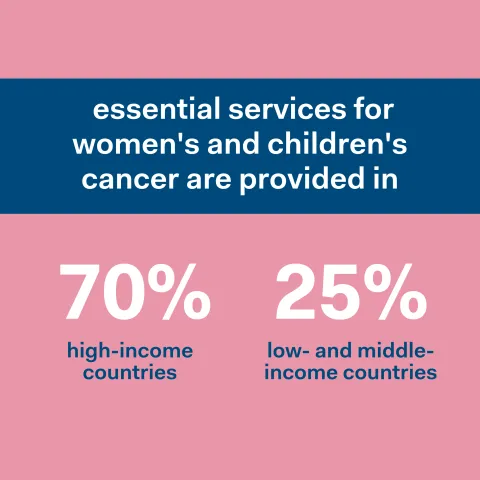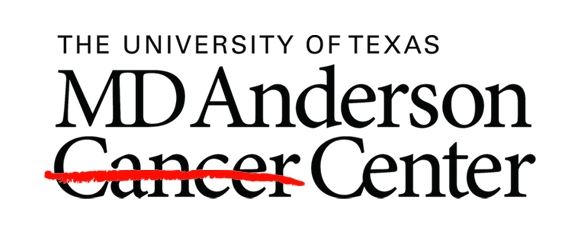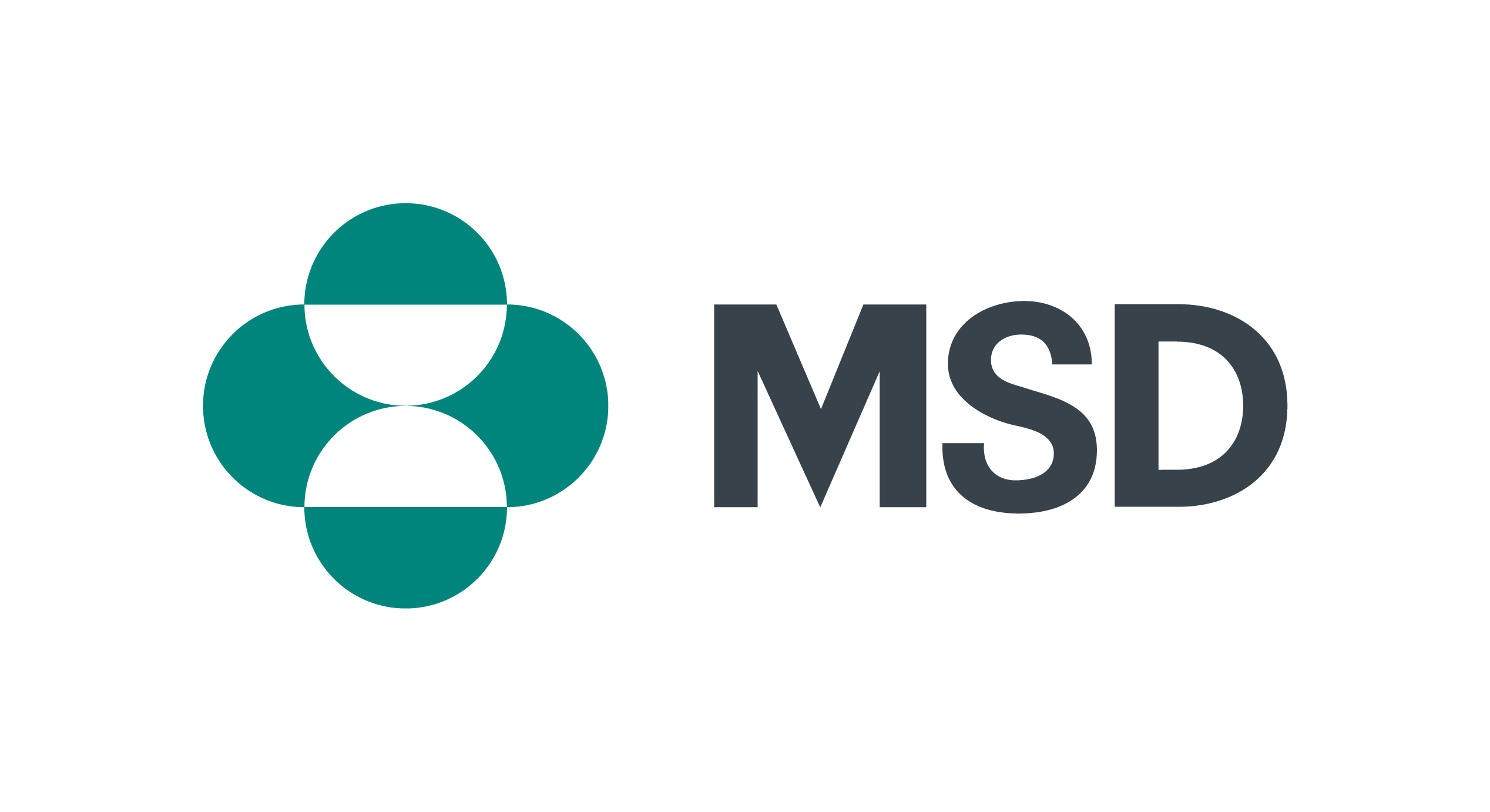Women and cancer
Women face a range of challenges when it comes to cancer, from biological and medical effects to psychosocial concerns, financial well-being, exposure to risk factors and discrimination.
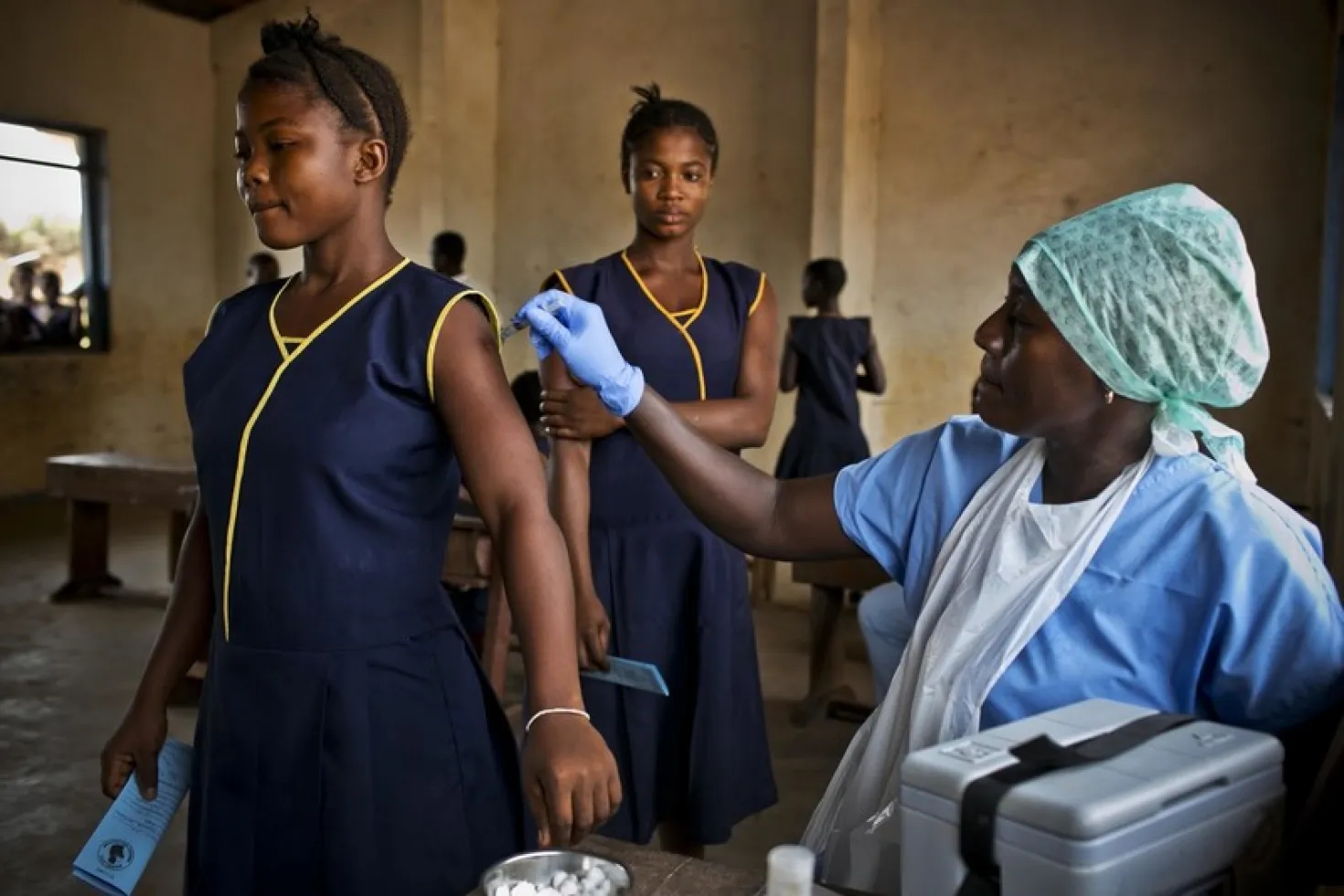
Cancer affects women in unique ways, with respect to their physical and mental health, environment, families and communities. The impact of cancer on women encompasses issues of women's rights and health, stigma, and access to healthcare services.
Stigma surrounding women's health and cancer, for instance, can prevent women from seeking appropriate healthcare services or discussing their symptoms openly. This can delay the diagnosis and treatment of cancer, leading to worse outcomes. Additionally, women in certain communities or with specific cultural backgrounds may face additional barriers to accessing healthcare services or discussing their health openly.
According to WHO, women are also significantly under-represented in the health workforce at the decision-making level, with an estimated three-quarters of the leadership roles held by men. Additionally, traditional gender roles can lead women to perpetuate biases entrenched in society.
Cancers that affect women
Breast cancer is the most common cancer in women, both in terms of cases and deaths, with an estimated 2.3 million new cases diagnosed in 2022 alone. Other common cancers in women include lung, colorectal, cervical, and ovarian cancer. While cancer impacts women of all ages, older women are at a higher risk of developing certain types of cancer.
Improving access to healthcare services and addressing social and cultural factors that impact women's health outcomes are essential to lowering the incidence and mortality of cancer in women, as well as improving their quality of life.
UICC is active in engaging a range of stakeholders in an integrated approach to address women’s cancers, particularly breast and cervical, which can be successfully treated when detected early but still cause a high number of deaths in low-resource settings due to late diagnosis.
Integrated approaches are needed to implement and expand effective cancer control programmes for women, including HPV vaccination, routine screening to detect early, timely treatment and care.
Click on images below to view them larger
Integrated approaches for women’s cancers
For over a decade, UICC has been active in advancing women’s cancers in collaboration with other major stakeholders. It has contributed to key global partnerships and supported the development of global agendas and strategies to improve the prevention, treatment and care of women’s cancers at the global and national levels.
Through its Breast Cancer programme and support of the WHO’s Global Strategy for the elimination of cervical cancer, UICC highlights opportunities for synergies whenever applicable throughout its activities:
- In 2024, UICC released a publication, ‘Integrated approaches for women’s cancers: Opportunities to advance health for women’ which explores the topic of integrated approaches for women’s cancers, providing insights from the perspective of those accessing care, to service delivery and across the building blocks of the health systems.
- In 2022 and 2023, UICC conducted a series of Regional Dialogues, ‘Women’s cancers: sharing experience, strengthening regional networks’ . The meetings were held in Abidjan, Côte d'Ivoire, and Rio de Janeiro, Brazil and Manila, Philippines. During these meetings, nearly 200 participants joined together from their respective regions to discuss actions needed to address the burden of women’s cancers.
- Aligning with UICC’s campaign to reduce global inequalities in cancer care, a Virtual Dialogue was held on the topic of ‘Gender-related leadership gaps and inequities in cancer control’ in 2022. Another dialogue exploring opportunities for integration to increase access to cancer services in Africa was held in 2021, with a spotlight on women’s cancers and also the need and drivers for health convergence.
- Since 2018, UICC has partnered with INCA (the French National Cancer Institute) to explore and develop a regional partnership for women’s cancers in Francophone Africa, learning from the Ouagadougou partnership on Family Planning as well as other global health partnership models in the regional and beyond, to ensure best coordination of stakeholder and sharing of best practices to maximise resources to increase access to women’s cancers. After a first workshop held in 2019 in Dakar, Senegal, UICC hosted a multistakeholder event in May 2022 during the World Health Assembly in Geneva to look at creating a partnership to tackle the burden of women’s cancer in Francophone Africa.
UICC’s focus on breast and cervical cancer
Today, breast and cervical cancer combined are the leading causes of death from cancer in women, with nearly 3 million new cases diagnosed and an estimated 761,122 deaths globally in 2022 (latest Globocan figures). While the incidence of cervical cancer is expected to drop by 2040, notably thanks to increased vaccination against the human papillomavirus that is a significant cause of cervical cancer, the number of cases of breast cancer is expected to rise by nearly double. There are also considerable difference in the expected rise in mortality related to both cancer: just under 6% for cervical cancer by 2040, but almost double for breast cancer.
There are also striking regional differences in the projected incidence and mortality for 2040. Africa, in particular, is predicted to see the number of breast cancer cases and related deaths increase two and a half times the current number; the incidence and mortality for cervical cancer is expected to rise nearly 30%, while they are dropping in higher income regions. These disparities are due to the lack of access to essential cancer services – notably prevention and early detection – but also gender inequities in power, resources, and culture, and are a stark illustration of the inequities that exist in cancer care between different populations.
Simultaneously, there is an unprecedented momentum to address these cancers with the WHO Global Strategy to eliminate cervical cancer and the recently launched WHO Global Breast Cancer Initiative. More than ever, it is urgent that the cancer community joins forces to translate this global momentum into reality. UICC therefore increases its efforts to address women’s cancers effectively, in particular through UICC’s dedicated breast cancer programme, through its unique support to WHO in developing and implementing the cervical cancer elimination strategy and by promoting integrated approaches to women’s health with the broader global health scene.

The 'women and cancer' channel gathers content related to women and cancer, including cancers that affect women, gender barriers in cancer control, women-centred approaches to care and more.
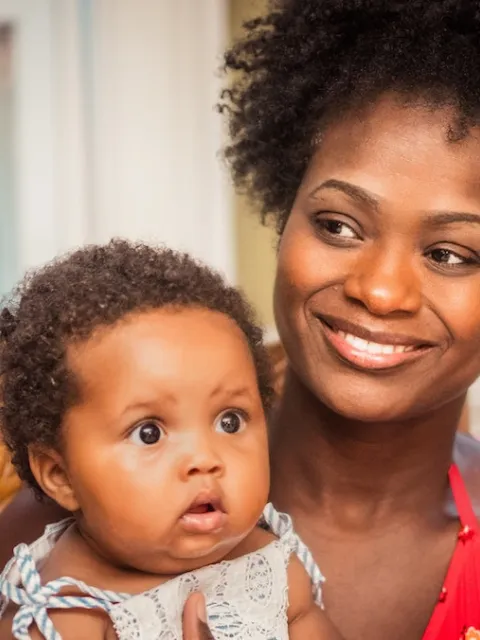
Partnerships and integrated approaches leveraging existing infrastructure can help expand services for women's cancers and improve prevention and care.
Expanding care for women’s cancers in low-resource...

This International Women’s Day on 8th March, WHO builds on the momentum generated by the cervical cancer elimination strategy with a new initiative on breast cancer, an action supported by UICC’s own investment in women cancers.
Reducing inequities and improving outcomes in...
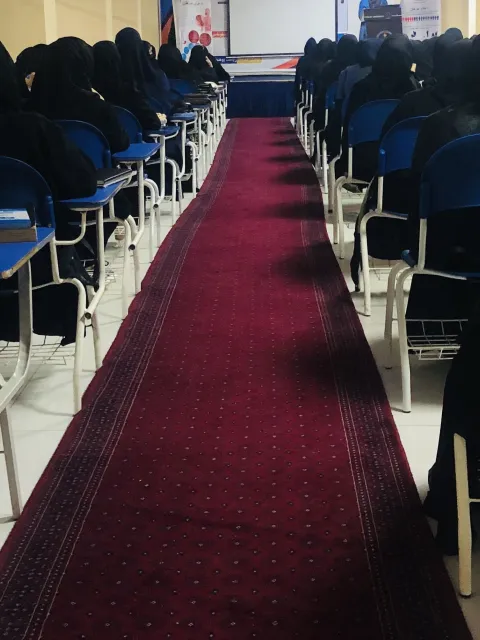
Musa Shukoor from the Afghanistan National Cancer Control Program spoke to UICC about how the organisation is reaching out to women and about the need for greater resources to treat cancer in the country.
Successfully reaching out to women in Afghanistan...
Supporting partners
Last update
Thursday 21 August 2025
